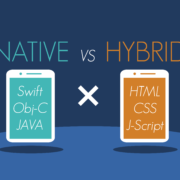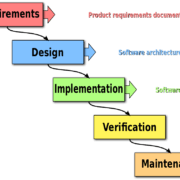4 Ways Service-Based Contractors Can Benefit from a Mobile App
In industrialized economies, service-based contractors grease the wheels in the market segments in which they compete. They allow enterprises, large and small, to outsource vital business processes to function more smoothly and cost-effectively. And that’s great, but how do contractors reduce their costs while increasing efficiency?
A way to change gears and turbo charge any service-based business is with a mobile app. And why that’s the case is because a mobile app helps automate various crucial tasks. Thus, reducing or cutting out staffing overheads almost entirely. Furthermore, a mobile app never sleeps and provides service around the clock.
And if you’re a contractor, all this may sound very enticing. But a mobile app doesn’t only help automate things, as it’s also capable of so much more. Below, we’ll go into greater detail about what mobile apps can do for service-based contractors.
1. Reporting Tools For Contractors Working Out In The Field
Let’s consider for a minute that you run a data center maintenance service in your area. And you have several technicians that drive out to these data centers, many of which are out of town. Now, you want all these technicians to keep you informed and report on all the maintenance work done at these sites. Preferably, you’ll want to have all reports submitted as quickly as possible to inform the client of any issues that will impact business.
But how do you do this without having your technicians come to the office or engage in costly phone calls?
Well, the most efficient way is by implementing powerful reporting tools in a mobile app, which may run on a tablet or smartphone. And this app may also include a checklist, which technicians need to check off to show that they’re working within established maintenance protocols. Furthermore, technicians can conduct security audits and report any breaches and discrepancies.
Once they input this information, the app will immediately send it to your servers and update the client’s maintenance report in real-time. In case of a breach, you can respond immediately by sending out a cyber security specialist and notifying your client. The quicker you respond, the higher your chances of dealing with a security breach and keeping your client’s data safe.
2. Enhance Collaboration With A Project Management App
It matters not if you’re running a data center maintenance or a packing service, as you’ll be dealing with customer demands, deadlines, and staff management issues. So, you’ll need tools that make collaboration a breeze, regardless of whether your staff comes to the office, works remotely or both.
A well-designed custom project management app will empower you and your staff to make the right moves. It should have an easy-to-understand user interface (UI) that your non-tech-savvy employees can navigate easily. But user-friendliness isn’t what this app is all about, as it will also need several vital features.
It should have a task tracker that can handle multiple projects, even thousands, if necessary. Moreover, it should accurately track and record the following: assigned staff, client information, due dates, project status, task descriptions, and task priorities. To better organize tasks, use a Kanban board combined with advanced filtering features to sort through multiple projects quickly.
And it’s necessary to implement a timer that accurately tracks the duration of all tasks. You may record this information and make it available in a timesheet. It will also help you determine the completion of projects, bill clients, and pay staff. Furthermore, you can integrate multiple payment processing platforms such as PayPal and Stripe for all digital transactions.
So, you can effectively turn your project management app into a central hub for handling the most crucial business processes. And when you grow your service-based business and need additional features, you have options. You can either add these to your project management app or develop another app that integrates with your existing systems.
3. AI Chatbots Apps Make Contractors Available 24/7
Clients hate it when they can’t reach their contractors on the phone or have to wait for an email response. They expect to speak to a company representative immediately to help them with any issues they may encounter. But as we all know, that’s not always possible, especially if the contractor is small in size without enough staff on hand. Or can’t afford to hire a call center to handle all incoming calls.
However, neither is a good excuse as to why contractors of any size can’t respond to their clients. Not only is this unprofessional, but it will also cause clients to reconsider working with contractors that don’t seem helpful.
So how do we solve this problem and provide clients with a 24/7 response channel? Well, a mobile app can act as a viable communications channel. And if we implement AI chatbots within the app’s messaging service, clients can have their queries answered by these chatbots immediately. In fact, AI-powered chatbots will seem so convincing that many clients won’t even realize that they’re not conversing with actual humans.
Furthermore, the beauty of chatbots is that they’re incredibly versatile. You can make them conversational so that they can be more engaging. Alternatively, they can operate as virtual assistants and be very informative to help clients with deeply technical issues.
And from a development standpoint, all the major technology companies have a chatbot or virtual assistant platform. Apple has Siri, Google has Dialogflow, and Microsoft has Azure Bot Service.
4. AR & VR For Interactive Training Sessions
Perhaps your company offers online and offline training services to clients. But you want to stand out by providing them an interactive and meaningful experience they won’t get anywhere else. And the best way to do this is with augmented reality (AR) or virtual reality (VR) mobile apps.
You’ll opt for an AR app if your training sessions require interaction and representation of the real world. For example, you may be training a client’s employees to detect and repair gas leaks on actual gas pipes. The AR app will aid them in correctly identifying the fittings, piping, and tubing as they pass the smartphone camera over these. And on the smartphone display, a description of the part with a visualization of the tooling and repair methodology will pop up.
But you may opt for a VR app if you need to simulate various dangerous scenarios related to gas leaks. Perhaps, you need these employees to fix gas pipes located in areas with highly combustible materials nearby. But you don’t want to put these employees in harm’s way, so it’s preferable for them to receive training in a virtual environment that’s completely safe.
The VR app will show a realistic 3D representation of the test environment with the pipe fittings. And each employee will wear a VR headset made exclusively for smartphones, such as the Samsung Gear VR. Then, the app will use a smartphone’s accelerometer to track head movements and the VR device’s controller to execute actions. For most employees, the experience won’t seem much different from playing a game from a first-person perspective.
The Bottom Line
Service-based contractors have become indispensable in modern economies. They help businesses of all sizes achieve their goals by providing services that are beyond the capabilities and scope of these businesses. And with the right kind of mobile apps, contractors can meet and surpass the expectations of even their most demanding clients.
Contact NS804 to learn how we’ll help you create outstanding mobile apps for your service-based contract business!










 https://www.pexels.com/photo/selective-focus-photography-of-person-holding-turned-on-smartphone-1092644/
https://www.pexels.com/photo/selective-focus-photography-of-person-holding-turned-on-smartphone-1092644/
Leave a Reply
Want to join the discussion?Feel free to contribute!